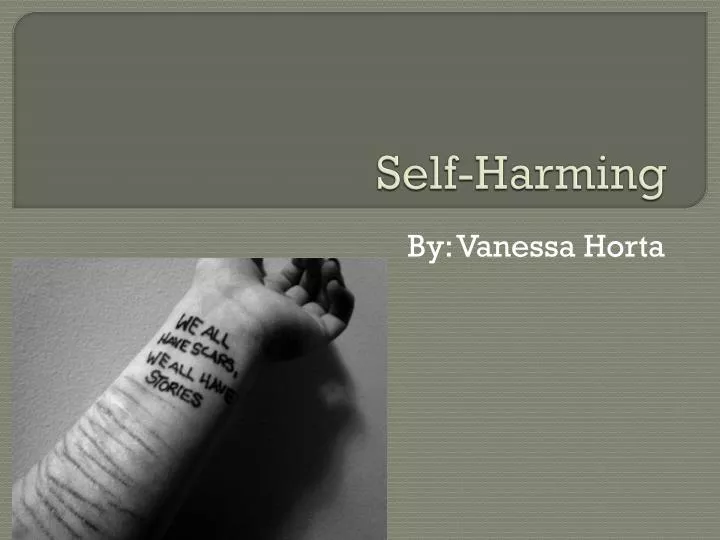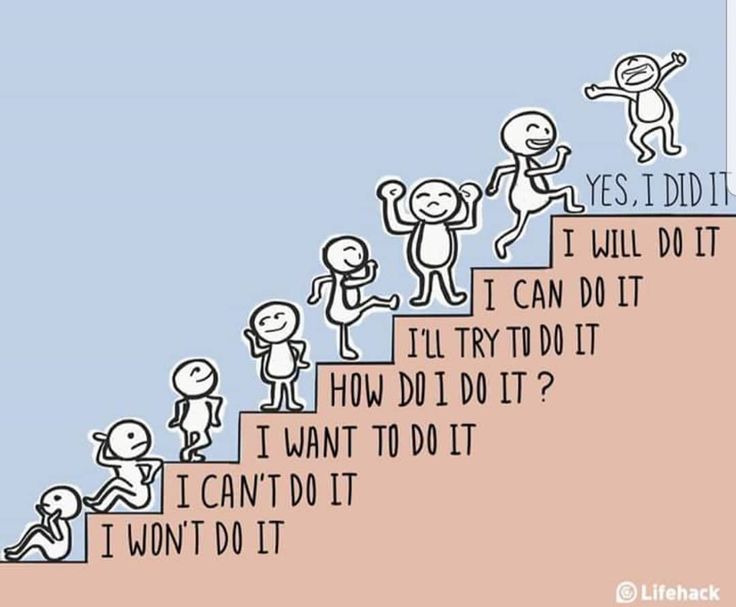How to show someone you re sorry
How to say 'sorry' and mean it
Admitting that you did or said something wrong, and then apologising to someone for it, can be nerve-racking and scary. Here are some tips that can make it a little easier.
Why saying ‘sorry’ is hard
Everyone behaves badly sometimes, even good people. Unfortunately, when you’re faced with owning up to jerk-like behaviour, your brain has to work overtime to convince you that you’re the one in the wrong. That’s not a pleasant experience.
Apologising is hard because we don’t want to feel bad about ourselves. We try to have a positive image of ourselves, and our need to protect that can make sincerely apologising quite hard.
Why owning up to our mistakes is important
Not being able to own up to our mistakes and to apologise sincerely to someone when we need to can harm every area of our life, including in the workplace, the classroom and our relationships. It can also prevent us from growing and learning from our experiences.
Steps for saying you’re sorry
1. Before you do anything, practise self-affirmation
It’s important to start by saying a few positive words to yourself. This is known as ‘self-affirmation’ and has a positive impact on the way you see yourself. Self-affirmation has been shown to improve self-confidence and self-esteem, while reducing stress and anxiety.
Reflect on your values and your great personal qualities – such as your talents and hobbies, your successes at work or at school, or the positive ways you treat family members and friends. For example, you could say to yourself something like: ‘I’m great at coming up with creative ideas,’ or ‘I’m kind towards everyone I meet.’
Using self-affirmation before offering someone an apology can actually help make your apology more genuine and sincere. By reminding yourself of your good qualities, you’re letting your guard down and showing yourself that ‘Hey, there are so many great things about you, one mistake doesn’t change anything. ’
’
2. Spell out why you want to apologise
It might sound obvious, but the first part of an apology is to clearly state what you have done before saying you’re sorry for it. It also shows the other person that you understand what you did wrong. It might be helpful to rehearse exactly what you’re going to say before you apologise.
For example, you might say: ‘I snapped at you yesterday.’
3. Admit you were wrong
It’s important to show the other person that you’re willing to take responsibility for your actions and to admit that you were wrong.
For example, you might say: ‘It was wrong of me to talk to you the way I did.’
4. Acknowledge the other person’s feelings
A good apology includes showing you’re aware of how your actions have impacted the other person. This tells them you understand why they feel hurt.
For example, you might say: ‘I understand you must have felt really upset, angry and confused.’
5.
 Say you’re sorry
Say you’re sorryShow that you’re sincere with a plain ol’ ‘I’m sorry.’ Keep it simple, and don’t tack a ‘but…’ onto the end of that sentence.
6. Ask them to forgive you
Ask for forgiveness by saying: ‘I know it will take time, but I really hope we can still be friends,’ or ‘Is there anything I can do to make this right?’ This lets the other person know that your relationship with them is really important to you.
Show that you’re sorry
Showing, not just saying, that you regret what you have done is an important part of apologising. If possible, think about how you can fix the problem and make things right. For example, if you lost or broke something that belonged to someone else, you could help them replace it.
However, some things can’t be fixed, such as when you’ve said something hurtful to a friend. In this instance, the best thing to do is to make sure it doesn’t happen again, and to show by your actions that you’re sincerely sorry. If you’ve realised that there’s a problem that you can work on, you could also mention this, to show that you’re taking steps to make sure it doesn’t happen again.
If you’ve realised that there’s a problem that you can work on, you could also mention this, to show that you’re taking steps to make sure it doesn’t happen again.
For example, you might say: ‘I realise that I struggle with controlling my anger, and it’s not fair to other people when I snap at them. I’m trying to be more aware of when this happens.’
It takes a lot of courage to admit that you’ve made a mistake and to apologise for it. It’ll be scary at first, but in the long run, learning how to do this sincerely can really improve your relationships with the people around you. You’ve got this.
What can I do now?
- Rehearse what you’re going to say before you start to apologise. If you want to say ‘sorry’, but you feel too anxious, you might think about putting your apology in writing.
- After you’ve apologised, give the other person some time to think about what you have said, then check in with them later to see how they are feeling.

- Head to the ReachOut Forums for more advice and tips.
Explore other topics
It's not always easy to find the right place to start. Our 'What's on your mind?' tool can help you explore what's right for you.
What's on your mind?
9 Ways to Show Someone You're Sorry if You've Really Messed up ...
9 Ways to Show Someone You're Sorry if You've Really Messed up ...If you’ve recently upset someone that you know, I’d like to share some ways to show someone you’re sorry, besides just saying it. Saying you’re sorry is simple, painless for most of us, yet doesn’t offer a true, direct sincerity like some of the other ways to show someone you’re sorry. I always say that actions speak louder than words, and these little tips put that theory into truth!
1 Go to Them
For starters, one of the most important ways to show someone you’re sorry is to go directly to them and apologize. Don’t just do it over the phone, or for goodness' sake, through email! Saying you’re sorry is something that should be done in person. It’s a direct way to show someone that no matter how embarrassed you are, you’re truly sorry enough to confront them face to face.
Don’t just do it over the phone, or for goodness' sake, through email! Saying you’re sorry is something that should be done in person. It’s a direct way to show someone that no matter how embarrassed you are, you’re truly sorry enough to confront them face to face.
2 Don’t Make the Same Mistake Twice
Next off, if you’re really sorry for something you did, don’t commit the same crime again later, or make this the second time you’re apologizing for the same thing. Most people forgive you the first go round, but the second time, they’ll question your honesty. If you’re going to show someone you’re sorry, be sure you do it honestly with them and yourself. Messing up twice for the same reason creates barriers that are hard to ever get back down again.
Alice love this ...
3 Write It out
If for any reason you really can’t apologize face to face, whether through traveling difficulties, or they refuse to see you, then write them a handwritten letter.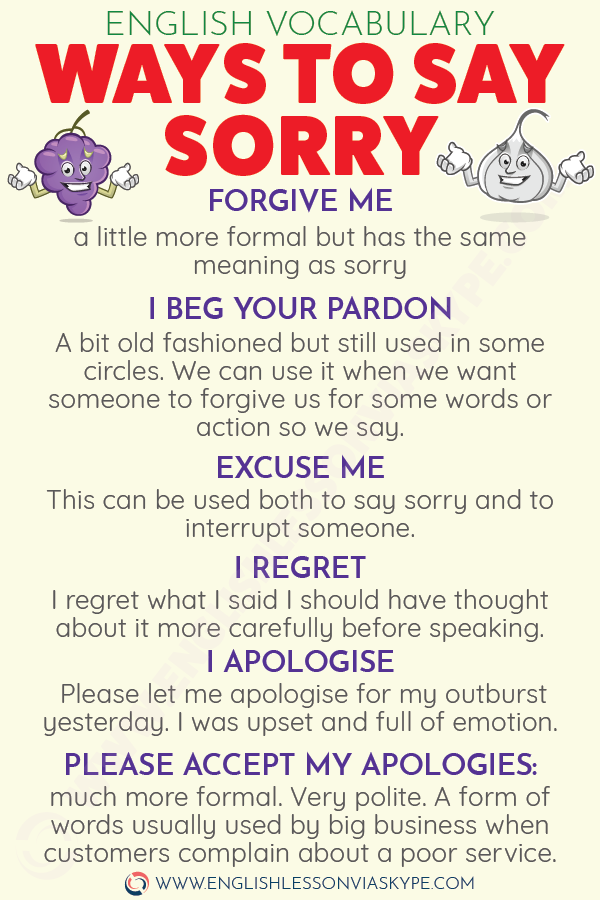 Don’t type it, but write it by hand and mail it through snail mail. Why? This is one of the oldest ways to write a letter, and quite possibly, one of the most appreciated ones. When you take the time to not only write a letter that’s truly expressive of what you feel, but also mail it the old fashioned way, it speaks volumes. Also, be sure to write more than just “I’m sorry.” Explain yourself, they deserve it!
Don’t type it, but write it by hand and mail it through snail mail. Why? This is one of the oldest ways to write a letter, and quite possibly, one of the most appreciated ones. When you take the time to not only write a letter that’s truly expressive of what you feel, but also mail it the old fashioned way, it speaks volumes. Also, be sure to write more than just “I’m sorry.” Explain yourself, they deserve it!
Jennifer what should I write ...
4 Give Them Time
Before you do anything, I’d at least give the person a day, or even better, a few days to calm down first. People are more receptive to thorough apologies once they’ve had time to sit with their feelings and let go of a little anger. Anger is always the first reaction when someone gets hurt, so give that time to pass and they might be more apt to listen to you.
Edee thank you! This has been very helpful? I will give...
5 Send Them a Card
After apologizing either by letter, or face to face, I also suggest sending a card. Visual reminders and words for them to read will be greatly effective and appreciated. Trust me!
Visual reminders and words for them to read will be greatly effective and appreciated. Trust me!
6 Make It Right
Whatever you did, either with money, lies, saying something wrong, etc., make amends by making things right. Go out of your way to correct the issue. Actions speak louder than words, and by making it right, you’ll be taking huge steps towards recovering your relationship with them.
7 Offer to do What’s Needed
Offer to do whatever you need to do to get their honesty back. People usually receive this offer well, even though they might not be able to answer it. Letting them know that you’re truly sorry, and letting them know you’ll do whatever it is you need to do to make things right puts everything out on the table.
8 Be 100% Honest
If you’re keeping something from them regarding why they’re upset, or about anything else, now is the time to be 100% honest. Let them know you care about them enough to hurt your own self pride enough to be honest with them about everything.
9 Don’t Throw Blame
No matter what happened, whether your fault or not, don’t throw blame if you messed up in handling the argument. Don’t say “you” when confronting them, and instead say “I” when expressing yourself. People become defensive when you talk accusingly and throw blame around. I know you’ll have to “eat your own crow,” but it’s very important, trust me! It will get you further, and your self pride may be deflated, yet isn’t that worth the relationship?
You should also be prepared that no matter what you do to show someone you’re sorry, there’s a possibility they won’t accept it. Depending on what happened, some things people just aren’t able to forgive. Forgive yourself and then move on, but first do everything you can to apologize the right way and show someone you’re truly sorry. Do you have a tip to show someone you’re sorry?
Please rate this article
☆☆☆☆☆
- little tips
- old fashioned way
Comments
Popular
Related
Recent
- Paris riche le stylo smoky eye shadow skirt .
 ..
.. - How are oranges good for you ...
- Should i say yes to his proposal ...
- What is walnut good for ...
- What things have gluten ...
- Paris riche le stylo smoky eye neon skirt ...
- How to tell your boyfriend you wanna have sex ...
- Is iranian food healthy ...
- What does dying your hair red mean ...
- What is enid blyton's best selling book? ...
We're completely wrong in apologizing. So how should it be?
- Arianne Cohen
- BBC Worklife
Sign up for our 'Context' newsletter to help you understand what's going on.
Image copyright, Getty Images
Scholars apologize for being completely confused with the study of apologies. New discoveries in this area are extremely rare, because it is very difficult to properly organize such a study - about as difficult as determining whether a woodpecker has a headache.
Cindy Frantz, a psychologist at Oberlin College, Ohio, USA, is still trying. "I once tried to do a study in a lab where someone would do something wrong - something that I would like to apologize for," she says.
"But the logistics turned out to be very difficult - for ethical reasons. You cannot force a person to do something terrible, requiring immediate and sincere repentance, in a laboratory."
- "Sorry for the bad example." Dad hit a woman on the arm and then apologized
- The creators of "South Park" mockingly apologized to the Chinese authorities
- Justin Trudeau: "I don't remember how many times I wore dark makeup"
- For what and to whom the journalists had to apologize
Most scientists resorts to hypothetical questions ("Imagine Sam just ran his car over your leg") or invokes memories that are notoriously biased and unreliable ("Tell me how you apologized to your mother"). In addition, our cultural differences confuse things even more.
In addition, our cultural differences confuse things even more.
However, there is an oasis in the scorched wilderness of apology research. For about 20 years, Yosuke Otsubo, a psychologist at the University of Kobe in Japan, has studied how people apologize around the world, and late last year published the fifth of six papers in which he added essential instructions for those who want to learn how to apologize sincerely and effectively.
That's the main thing.
When you ask for forgiveness, it is best to pay for your guilt with a very expensive gift, to sacrifice something dear to you.
For example, a corporation that has done wrong to its customers may give them expensive gift certificates as a token of remorse, or an individual may try to make amends by canceling an important trip ("I canceled all my plans for this weekend and spend Saturday with you").
Of course, the idea of gifts for the sake of forgiveness is as old as the world. However, the original contribution of Yosuke Otsubo and the essence of his discovery is that the gift should not be aimed at enriching the recipient at all.
However, the original contribution of Yosuke Otsubo and the essence of his discovery is that the gift should not be aimed at enriching the recipient at all.
Skip Podcast and continue reading.
Podcast
What was that?
We quickly, simply and clearly explain what happened, why it's important and what's next.
episodes
The End of the Story Podcast
"My research has shown that the main thing that matters is the price for the abuser," he says. In other words, the gift must hurt the person who gives it.
Otsubo's work demonstrates that this is true for groups as well as individuals, for both public and private apologies, in countries as diverse as the US, South Korea, the Netherlands, Indonesia, Chile, Japan, and China.
He gives an example: popular Japanese singer Minami Minegishi apologized to her fans for her behavior that violated her contract (prohibition of relationships with young people) by shaving her head bald and showing how dear her career and relationships with fans are. At the same time, she stressed that she would never again do anything that would harm this relationship.
At the same time, she stressed that she would never again do anything that would harm this relationship.
For those of us who are used to beating around the bush and mumbling "well, I'm sorry, you understand how this happened, I didn't mean it at all ...", this is a real conceptual shift: the purpose of an apology is not to say "I'm sorry" and explain your past behavior, but to show how much you value the relationship and the lesson learned.
Be sure to make a convincing promise that your bad behavior will never happen again (and your gift cost you too much to use such an apology again).
Restoring Self-Respect
Aside from gifts, the rest of the rules for making an apology are pretty simple and straightforward, says Amy Ebesu Hubbard, dean of the Department of Communications at the University of Hawaii at Manoa (USA): accept responsibility for what you did, for the harm and suffering caused by your act, promise to behave well in the future, offer immediate remedial action, and demonstrate sincerity of remorse.
The words "I'm sorry" and "I apologize" must be used, although not all of the listed components are necessary in case of minor transgressions.
Image copyright, Getty Images
Image caption,Revisiting a mistake, analyzing it while apologizing is highly undesirable, as it only reinforces the offended circumstance of what happened.
Another recent study published in the American Marketing Association Journal of Marketing, an interesting point is added: start with "thank you for ...", especially when it comes to not very serious cases.
"Instead of saying "sorry for the long wait," say "thank you for your understanding" or "thank you for your patience" first, says study lead author Xiaoyang Deng, associate professor of marketing at Ohio State University's Fisher College of Business ( United States), who conducted seven studies on the behavior of American and Chinese students and Amazon employees in situations involving missed appointments and poor service in restaurants and shopping.
"Showing how much you appreciate your customers who have been affected by your actions, you increase their self-esteem. Which, in turn, leads to increased satisfaction with the situation."
In addition, she recommends not going back into the details of the blunder, as this will only reinforce it in the memory of offended people. Instead, just unconditionally admit your mistake.
As a rule of thumb, gratitude and apology work best in tandem, says Cindy Franz.
"Feeling highly valued by others is a key psychological need, and your gratitude will help repair the self-esteem damaged by your act," she emphasizes.
"Gratefulness restores self-respect, and apology shows how you intend to behave in the future."
Image copyright, Getty Images
Image caption,Japanese apologies: eyes on the floor
These recommendations are supported by the work of Alison Wood Brooks, assistant professor of business management at Harvard Business School.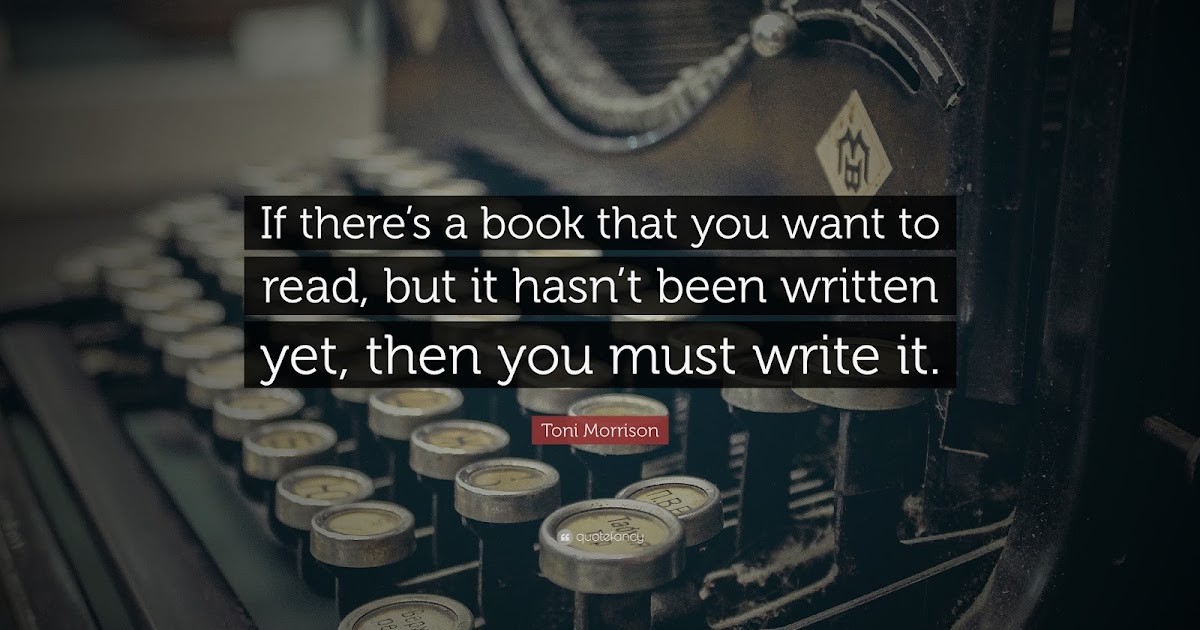 She (along with a colleague) is currently immersed in a veritable treasure trove of apologies - the archives of parole hearings for crimes ranging from speeding to murder.
She (along with a colleague) is currently immersed in a veritable treasure trove of apologies - the archives of parole hearings for crimes ranging from speeding to murder.
She has found that apologies with promises of good future behavior are more effective. But an apology that includes an explanation of why a violation or a crime was committed does not have such a result.
For example, members of the parole board do not like to be told, "I was driving drunk because I was very tired and wanted to leave quickly. I take full responsibility for this wrong decision."
Here's what they want to hear: "I plan to attend Alcoholics Anonymous meetings twice a week and go to the gym on Sundays."
According to Brooks, her research suggests that explaining and making excuses for past wrongdoing should be avoided.
Choosing the right time is important. Still eagerly cited, Cindy Franz's study bears the telling title "Better late than early": don't apologize too quickly, it won't work, it notes.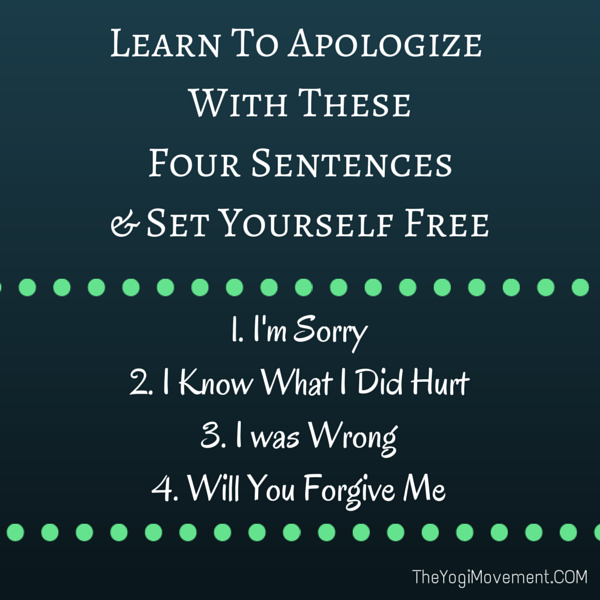
“The purpose of an apology is to help the victim of your act feel heard and understood, and to convince the perpetrator that he will not do it again,” says Franz. “Thus, your hasty and fussy apology made before the offended speak out, they won't give you anything."
The sincerity of the apologetic
Apology experts are very interesting to talk to because they perceive everything that happens in the world as a series of apologies, although sometimes they can not remember the details of the wrongs caused.
Image copyright, Getty Images
Image caption,Yosuke Otsubo, a psychologist at Kobe University, believes that the best way to apologize is to pay for your guilt with a gift that will cost the giver dearly
All my interlocutors agree that public apologies that are not addressed specifically to the person who is offended are completely useless. And those - 9eight%.
A classic example is a politician caught cheating on his wife.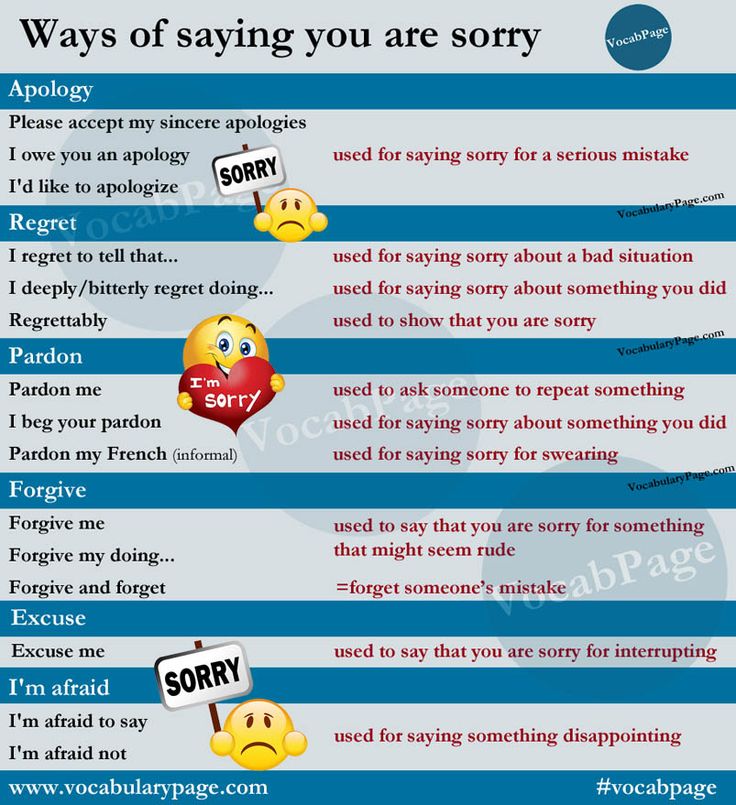 Such a politician usually makes a public apology to his constituents, and only then, inside these apologies, along the way, asks for forgiveness from the deceived wife.
Such a politician usually makes a public apology to his constituents, and only then, inside these apologies, along the way, asks for forgiveness from the deceived wife.
"It looks a little strange," says Ebesu Hubbard, emphasizing that bystanders and those to whom an apology is addressed may perceive the level of sincerity of the apologizer quite differently.
"The most important thing is whether the one to whom the apology is made recognizes their sincerity." What others think is irrelevant.
She praises Kentucky Gov. Andy Basher, who in late April called a man who registered for unemployment benefits under the name of famous rapper Tupac Shakur a scammer. It turned out, however, that this is a real name, and the Kentuckian, the full namesake of the late rapper, was offended.
"Then Basher did everything right when you want to apologize properly," emphasizes Ebesu Hubbard.
First, he called Shakur to ask for forgiveness in person, then publicly stated that he had offended a person, fully admitted his guilt and - most importantly - praised the generosity of the real Tupac Shakur.
However, a typical example of a corporate apology is KFC's actions in 2018, says Edwin Battistella, author of I'm Sorry About It. The language of public apologies."
Faced with the problem of delivering chicken to its restaurants, KFC published an apology to customers in newspapers, in which illustrations in the familiar logo were reversed - "FCK".
In addition, on Twitter, the company wrote : "The chicken crossed the road, but did not enter our restaurant," which provoked a flurry of humorous comments.0011
"They came out really well," says Battistella. "They managed to play a trick on themselves."
Read the original English version of this article at BBC Worklife.
Pity: is there anything good in it?
80 638
Know yourself Loneliness
Unfortunately, there are a lot of claims on the Internet. A superficial search immediately gave such thoughts. “Pity humiliates those you pity. Pity does not bring any progress and does not help anyone. Instead of regretting, it is better to really help a person, sometimes this help seems tough ... like a slap in the face during a tantrum, but it is necessary. Pity encourages a person to be further weak and only whine: “how poor and unhappy I am.”
“Pity humiliates those you pity. Pity does not bring any progress and does not help anyone. Instead of regretting, it is better to really help a person, sometimes this help seems tough ... like a slap in the face during a tantrum, but it is necessary. Pity encourages a person to be further weak and only whine: “how poor and unhappy I am.”
“Pity is a form of discomfort, often taking the form of condescending compassion. The object of pity is perceived as “pathetic”, that is, humiliated in his unfortunate position, but at the same time valuable.” “Pity is a humiliating feeling: both humiliating the one who pities, and the one who is pitied.” And as a result: "Pity is the most terrible feeling that you can feel for a person."
What is called, arrived. Pity began to be erected to the word "sting" and correlated with "sting". Then what shall we call a man who knows no pity? Ruthless. I do not like? And why, if pity is the most terrible feeling, discomfort and humiliation? You can also throw away the same-root “regret”, “take pity” and “sorry”.
For me, pity is closely related to physical touch, light strokes, hugs. When my daughter, having fallen off a bicycle, cries from pain or resentment, clutching at her skinned knees, my heart shrinks precisely from pity, and this pity requires a touch, the warmth of the presence of another near at the moment when a loved one is hurt and he is helpless.
Is this feeling uncomfortable? No. Pity is an emotional response to another's helplessness when they don't have the resources to cope
When we feel that a person who is experiencing suffering has the resources to overcome it, then we can sympathize with him. But not always at the moment of suffering a person has a resource, and pity makes it possible to borrow someone else's, to feel the strength of another nearby, when there are no one's own strengths.
A person becomes "miserable" not out of pity. What does "pathetic" mean? Dictionaries are dominated by such characteristics: miserable, despicable, insignificant. If you feel sorry for a crying baby who has lost something important or pinched his finger, are you doing this because he is miserable, despicable or insignificant? Is he sorry? Or do you disguise "unworthy" pity for the child with detached "I sympathize" or "I sympathize"?
If you feel sorry for a crying baby who has lost something important or pinched his finger, are you doing this because he is miserable, despicable or insignificant? Is he sorry? Or do you disguise "unworthy" pity for the child with detached "I sympathize" or "I sympathize"?
One day we were walking home as a family and a puppy followed us. Obviously homeless, he ran, yapping funny, wagging his tail and trying to look into his eyes: they say, maybe you can take me with you, huh? The daughters got excited, and I was very sorry for this baby, but dogs or any other pets were not included in my plans. So we went on, and he ran after - quite a long time, I must say ...
I feel sorry for this puppy, not "I sympathize." Another thing is that I did not translate my pity into the action of “taking it home with me”, because I was not ready to take care of him all his life.
So, pity is a feeling directed at someone who is currently experiencing suffering and does not feel the resources to cope with it himself.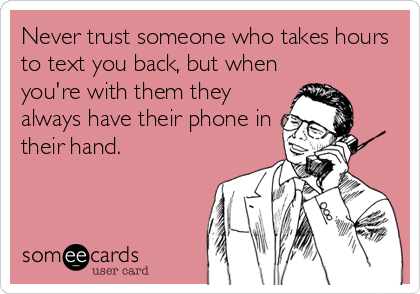 Pity can be a quick response to sudden pain (hit hard, cut, fall). It is clear that more often this feeling arises in connection with children and animals, but any adult at some point can be stranded, like a fish on land, and be unable to jump back into the water. This may be rare, but it is possible.
Pity can be a quick response to sudden pain (hit hard, cut, fall). It is clear that more often this feeling arises in connection with children and animals, but any adult at some point can be stranded, like a fish on land, and be unable to jump back into the water. This may be rare, but it is possible.
Pitying another, you temporarily replace yourself with a support that makes it possible to survive a moment of complete despair and hopelessness. And it is in this moment that a very fragile balance lies, the violation of which leads to the fact that pity begins to cause a lot of rejection, irritation and anger.
Have you noticed how mothers comfort their children? Someone strokes the head, back or shoulder, accompanying the actions with words of consolation - “I understand how it hurts you”, “the dog hurts, the cat hurts, but Sasha doesn’t hurt”, “it will pass soon”. And someone tells the child about his helplessness: “you are my unfortunate”, “my poor thing”, “well, why are you so clumsy”, “all like your father, bungler, born, unhappy” . ..
..
Feel the difference between the first and second options for consolation?
In the first case, parents help the child to live through the pain or emotion, without fixing his attention on his own “lack of resources”. This is close to regret - an experience associated with the realization of the impossibility of changing or correcting something. “You fell off your bike, it’s very unpleasant, but nothing terrible happened, now the pain will pass and everything will be all right.”
In the second case, the child is told that he is helpless, clumsy and that he is unlikely to be able to do anything better. This form of pity is often "swallowed" by a child, but it annoys adults - however, those adults who feel strong enough in themselves to cope.
You can parasitize on someone else's pity, but this is possible only on condition that both parties take an active part in this. The “helpless” demonstrates with all his might his lack of strength (a paradox, yes), and the one who regrets willingly believes that the unfortunate person really does not have any opportunities to change something. This is the basis of “love out of pity”, which, in essence, becomes love for feeling strong next to the helpless.
This is the basis of “love out of pity”, which, in essence, becomes love for feeling strong next to the helpless.
"I can't live without you!" is a classic manipulative phrase. But the phrase is flattering to those for whom the only way to feel valued is through nourishment from those in need. In such pity-dependence, there is no resource on the part of the “pityer”, for him the helplessness of the other (real or imaginary) is in itself a resource in order to support himself. Here there is no genuine pity as a desire to temporarily share one's strength, here there is mutual parasitism on common weaknesses.
If love is pity, then this love can only last until the moment when the "beloved" gets on his feet. "He/she would be lost without me!" - and then everything is done so that he / she could not leave, because this means the end of “love”. A person who is not ready to become a "donor" to feel someone else's "strength" will angrily brush aside "poor you, unfortunate one. "
"
There is also the manipulative "I'm sorry for you." This is a simple assertion of superiority over the flawed, in which there is no desire to be a support for the one you “pity”.
But self-pity is a strange experience. You are experiencing the fact of your helplessness and inability to change something, but at the same time you are trying to be your own support in this state. A vicious circle: helplessness - an attempt to support oneself - failure - an increase in helplessness and hopelessness.
In fact, you are trying to do for yourself what you would like to be done for you. Self-pity is a veiled request to others for support and help, which for some reason cannot be directly stated. Partly because of the fear of revealing one's weakness, of appearing "pathetic", partly because of the fear of being rejected. But nothing better than self-pity.
The key state for pity is the real or perceived helplessness of the other
Pity as an experience is a short-term phenomenon associated with specific situations, enabling the one who is pityed to rely on another to restore his own resources.
Action out of pity is always the transfer of one's strength (emotional or physical) to other people, and there are situations in which this is not only possible, but necessary, but such a state cannot be long-term. Relationships built on pity inevitably lead to mutual dependence-parasitism, when the weakness of one becomes a condition for the strength of the other.
The positive pole of this feeling is the possibility of self-giving, the ability to be a temporary support for the desperately needy. In the negative, it is a limitation or inhibition of the development of both other people (since everything is done for them), and one’s own: resources are not spent on one’s own life.
Pity in this inhibition is not in itself to blame, like any other "bad" feelings. It becomes an unacceptable feeling in a world in which helplessness and weakness as such, regardless of context and situation, are regarded as a shameful vice
-
Alfried Lenglet “What moves a person? Existential-analytical theory of emotions»
-
Daniel Goleman «Emotional intelligence.




